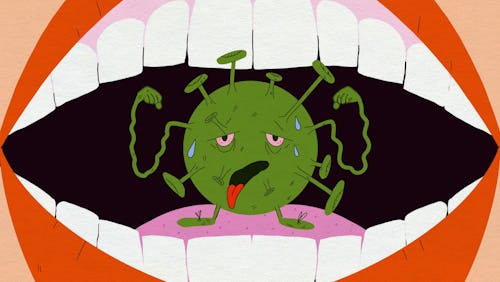
We seem to be at another crucial turning point in the pandemic. Every day it seems like new — and often conflicting — data is released. Yesterday, the Biden administration announced that we will all probably have to get annual COVID boosters, but now scientists have discovered antibodies they say could make boosters unnecessary. Here’s what we know about the newly discovered, potentially game-changing COVID antibodies.
The study, which was released yesterday in the journal Communications Biology, is actually the continuation of preliminary research that began in 2020. At the height of the pandemic, scientists began sequencing the immune system cells of people who had recovered from COVID. They isolated nine antibodies that were effective at neutralizing the virus, and now say that these antibodies remain effective — even against Delta and Omicron.
The antibodies — called TAU-1109 and TAU-2310 — work by binding to the spike protein of the coronavirus. Basically, they attach to the spiky part of the COVID virus cell that allows it to get into healthy cells, preventing COVID from entering. And they seem to be extremely good at it. TAU-1109 is 92% effective at neutralizing the Omicron strain and 90% effective at neutralizing Delta. TAU-2310 is 84% effective in neutralizing Omicron and 97% effective in neutralizing Delta, according to the study.
If those efficacy rates are blowing you away, well, me too. While the trials always seemed impressive, none of the vaccines has been able to boast such effectiveness in real life applications. That’s partly because the virus has continued to mutate in ways that evade the boosters. The hope of researchers is that these antibodies could be used to create universal COVID treatments that prevent the need for repeated boosters and boost immunity in populations who are at high risk, EurekAlert reported.
It’s worth noting that the discovery of these antibodies is not the same as the creation of a treatment protocol — but it could lead to one that eliminates the need for boosters. “It is therefore possible that by using effective antibody treatment, we will not have to provide booster doses to the entire population every time there is a new variant,” Natalia Freund, researcher at Department of Clinical Microbiology and Immunology at the Sackler Faculty of Medicine in Tel Aviv and co-author of the study, told EurekAlert.
In other good news, scientists at Duke University announced Tuesday that they had discovered an antibody — SP1-77 — that is effective in neutralizing all forms of COVID in mice. So there is good reason to be hopeful about the potential that antibody treatment may have in curtailing COVID. That being said, I’ve been on this hopeful rollercoaster before so I’m going to tempter my optimism with a bit of caution.







